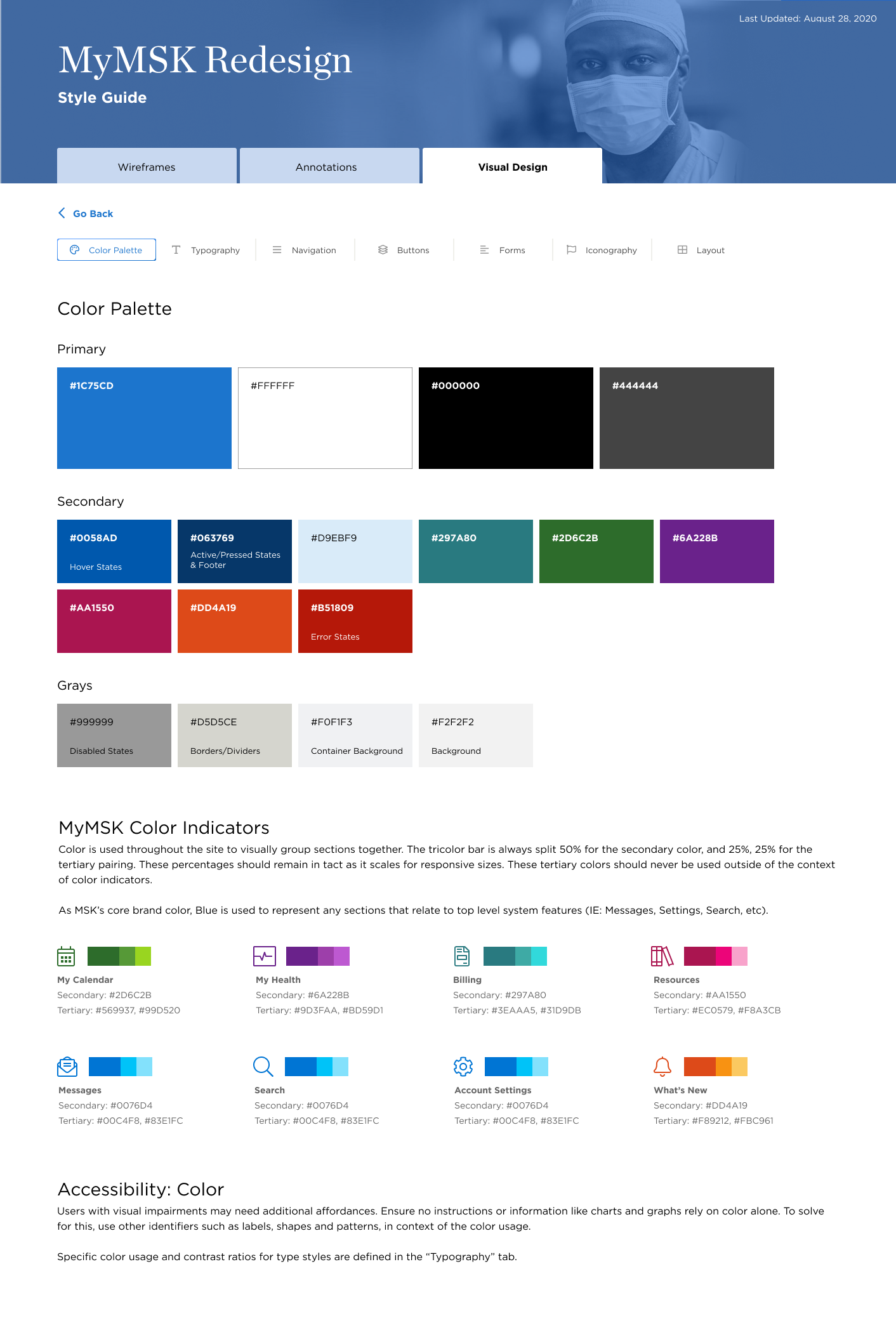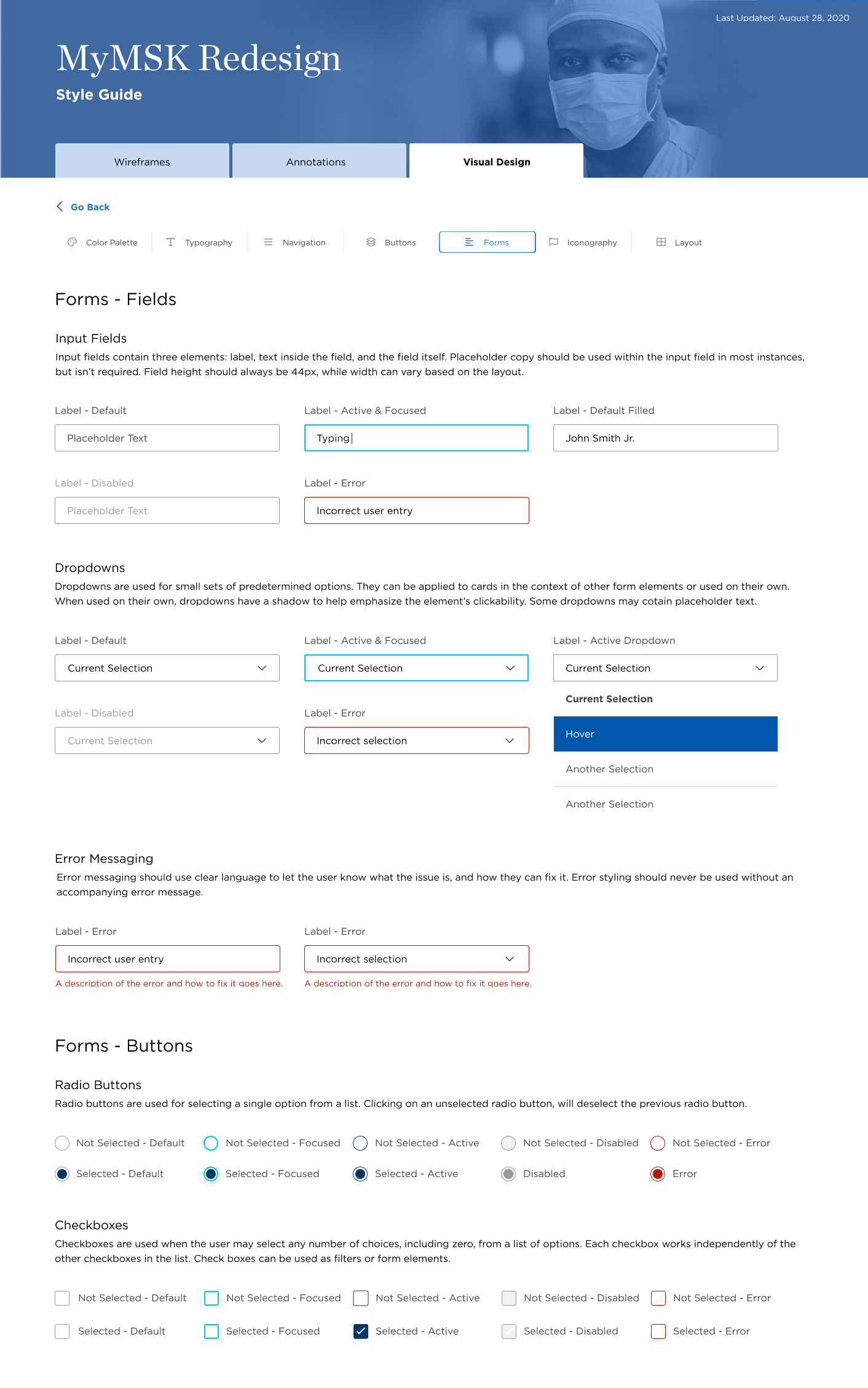
Clover Networks
How might we help merchants be more efficient and accurate when conducting transactions?
My role as a lead designer
Improve the non-clinical patient experience by ensuring our platform assets help clarify, facilitate, and manage the patient’s treatment journey. Align all work streams to the overall platform vision and organizational strategy. Collaborate with the other platform leads to ensure the ecosystem functions as intended.
the team
A small, devoted team of UX, process, and service designers floating across four platforms.
PROCESS
Product design sprints, as much as possible.

Deep Discovery
a 360 approach
The patient portal was home-grown organically by different teams. There were no standard patterns or libraries. Not only was it difficult for patients to use, but it was also expensive to update and expand and impossible to accommodate the impending rebranding. Leveraging design library best practices and through usability testing, the team improved on the navigation, interaction patterns, and the organization and clarity of the patient information.
merchant interview
MSK’s mobile app did not have a strategy beyond the feature parity of the online portal. Because of that, it was at risk of being descoped. The organization needed a mobile-first strategy to justify the cost. After a rapid discovery process, the team proposed a proactive agentive experience to complement and extend the portal experience.
merchant data deepdive
MSK wants to help patient reduce angst and confusion by extending our knowledge and expertise into a new patient-facing entity, preventing cancer patients from the need to rely on “Dr. Google.” Our team conducted several rounds of user research to discover what patients want from us, what would set us apart from content powerhouses such as WebMD and Mayo Clinic.
Experience deep-dive: bulk upload
MSK did not have a simple or standardized onboarding process. Different treatment areas and teams had their own. Our team audited and analyzed them and consolidated over 27 flows and 200 screens into a standard 4-screen process with smart modules and fields.
Data Modelling
business workflow & data workflow
The patient portal was home-grown organically by different teams. There were no standard patterns or libraries. Not only was it difficult for patients to use, but it was also expensive to update and expand and impossible to accommodate the impending rebranding. Leveraging design library best practices and through usability testing, the team improved on the navigation, interaction patterns, and the organization and clarity of the patient information.
items catalog data relationships modeling
The patient portal was home-grown organically by different teams. There were no standard patterns or libraries. Not only was it difficult for patients to use, but it was also expensive to update and expand and impossible to accommodate the impending rebranding. Leveraging design library best practices and through usability testing, the team improved on the navigation, interaction patterns, and the organization and clarity of the patient information.

Other Initiatives
Service industries workflow and data needs analysis
The patient portal was home-grown organically by different teams. There were no standard patterns or libraries. Not only was it difficult for patients to use, but it was also expensive to update and expand and impossible to accommodate the impending rebranding. Leveraging design library best practices and through usability testing, the team improved on the navigation, interaction patterns, and the organization and clarity of the patient information.
Unified onboarding experience
MSK’s mobile app did not have a strategy beyond the feature parity of the online portal. Because of that, it was at risk of being descoped. The organization needed a mobile-first strategy to justify the cost. After a rapid discovery process, the team proposed a proactive agentive experience to complement and extend the portal experience.




























